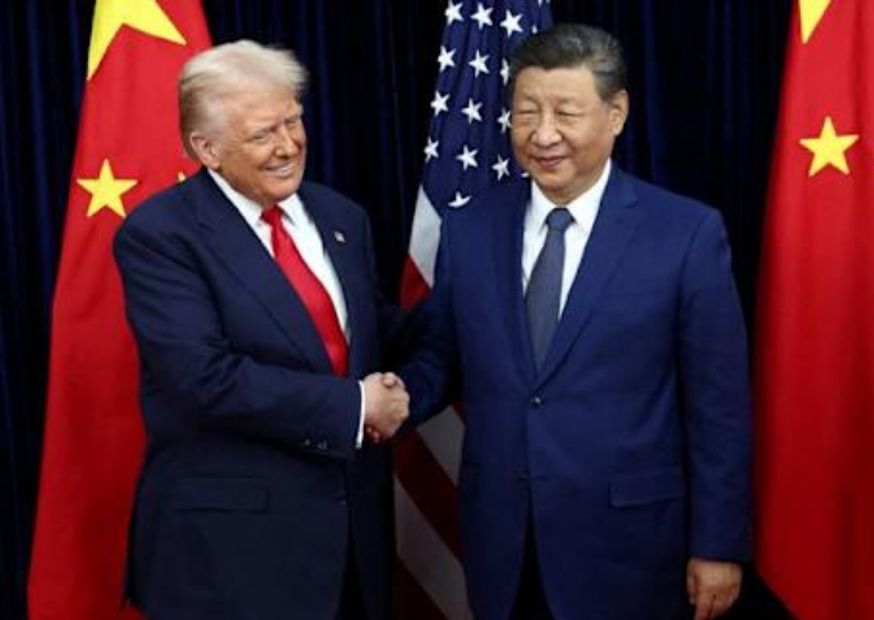BEIJING, CHINA: In a major development signalling a thaw in economic tensions, the United States and China have reached a fresh trade understanding on tariffs and rare-earth mineral exports — a move poised to reshape the global industrial and technological landscape.
Former U.S. President Donald Trump announced that he and Chinese President Xi Jinping have agreed on a new framework deal addressing both tariff reductions and the supply of critical rare-earth minerals. The accord, struck ahead of their anticipated summit in South Korea, comes after weeks of intense backdoor negotiations between top officials from both nations.
Under the agreement, China will ease its export restrictions on rare-earth elements — essential for manufacturing electronics, electric vehicles, and defence technology — while the U.S. will suspend plans for a 100% tariff hike on Chinese imports. The breakthrough is expected to cool rising trade tensions that had rattled global markets and strained manufacturing supply chains.
Sources suggest the revised tariff rate could drop to around 47%, offering breathing room to industries dependent on Chinese raw materials. Additionally, both sides are expected to expand cooperation on agriculture and technology, including steps to curb the flow of chemical precursors tied to the fentanyl crisis.
Economic experts have termed the move a “strategic recalibration,” highlighting how it may stabilise markets across Asia and beyond. For countries like Pakistan, which depend on balanced global trade flows, the development could bring indirect relief in terms of lower industrial costs and improved import stability.
The deal, however, remains in its preliminary phase and awaits formal ratification from both sides. The coming summit will determine how quickly the framework translates into tangible policy shifts.
This story has been reported by PakTribune. All rights reserved.



